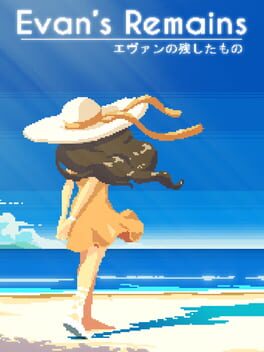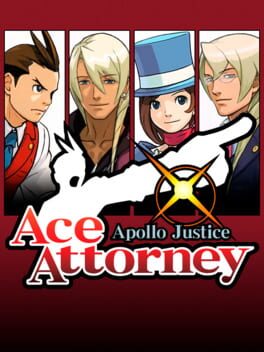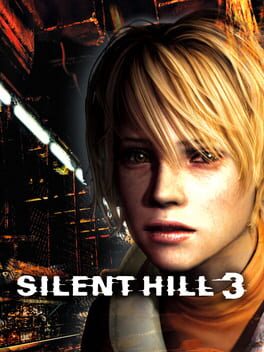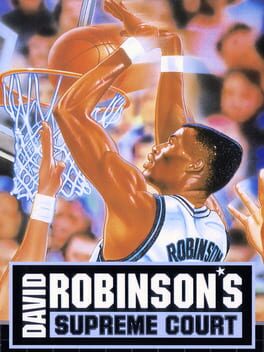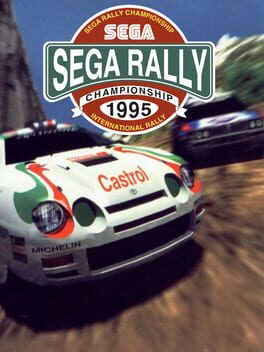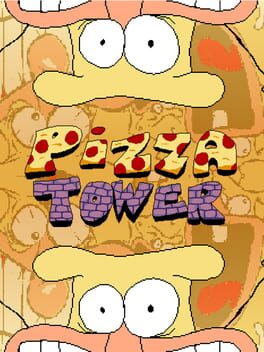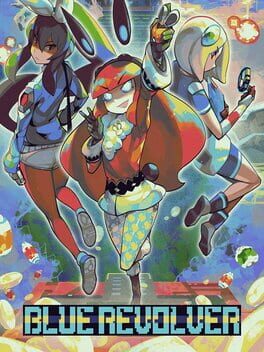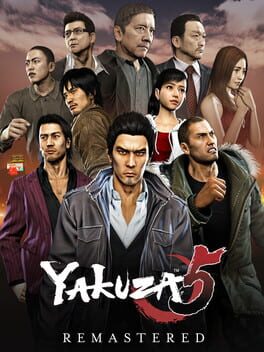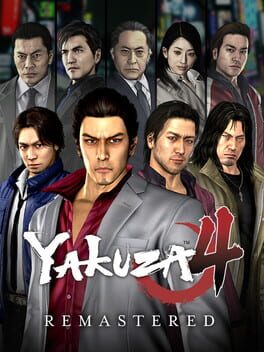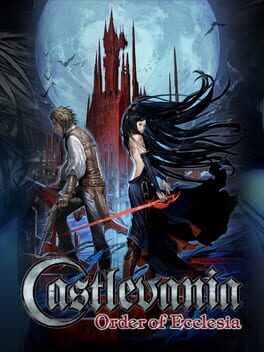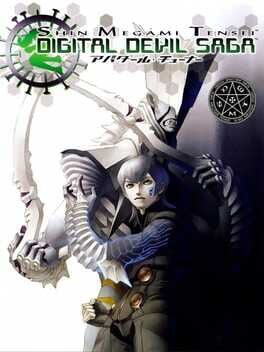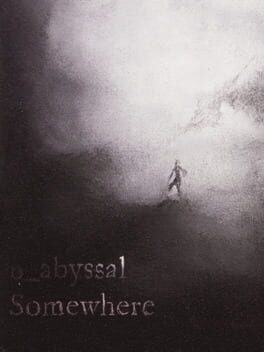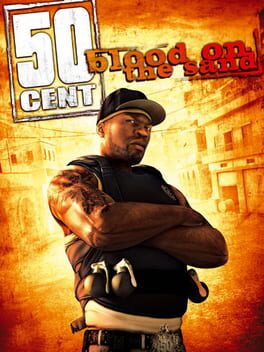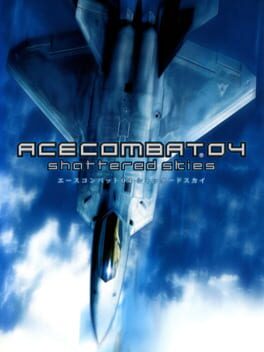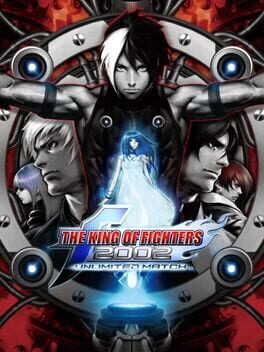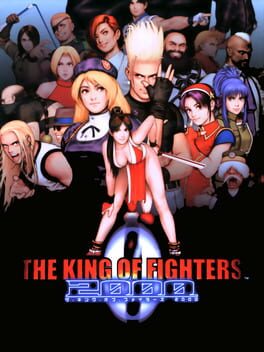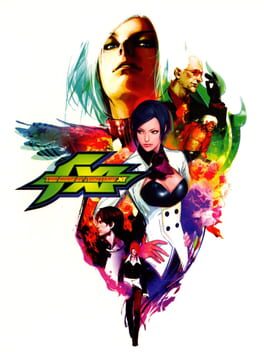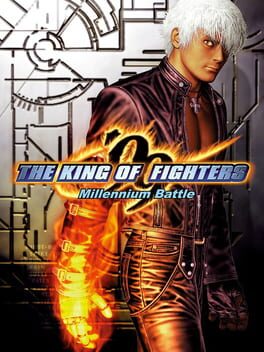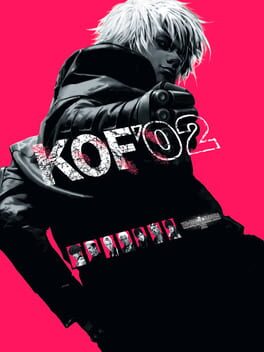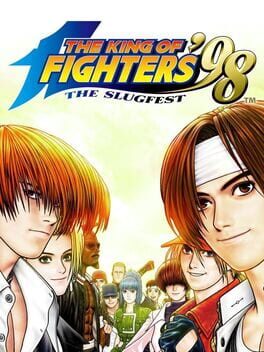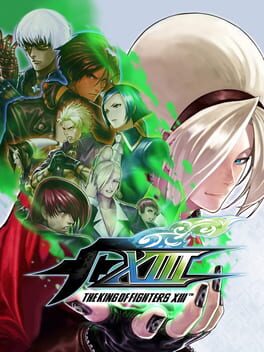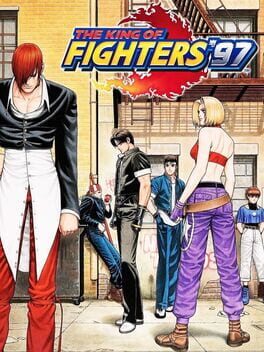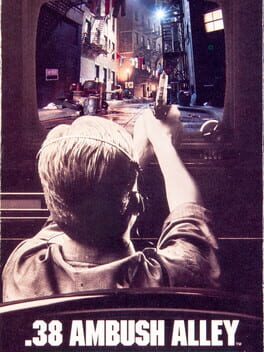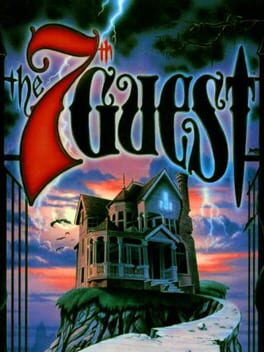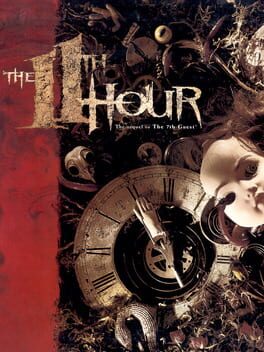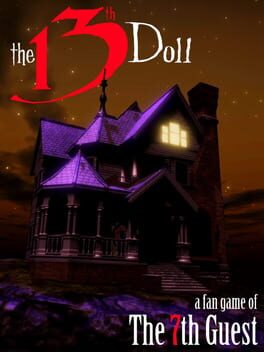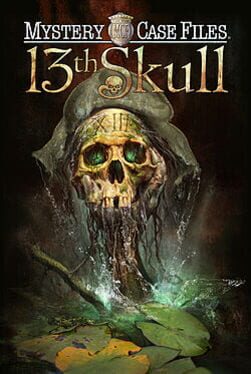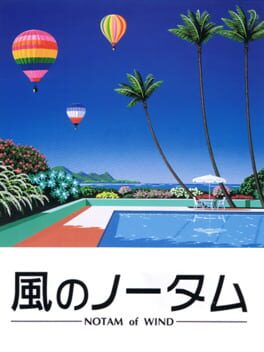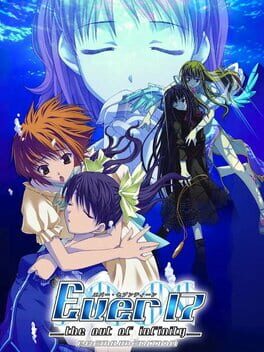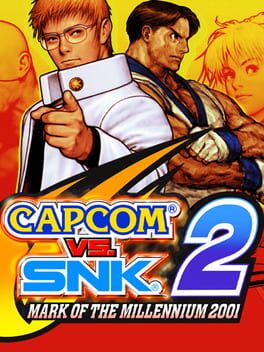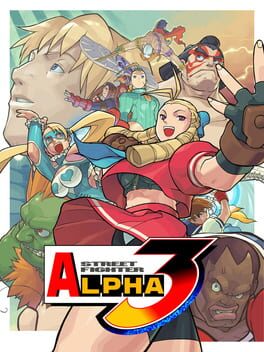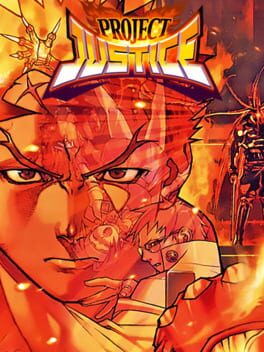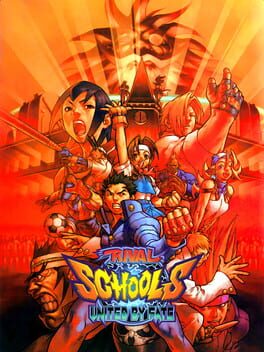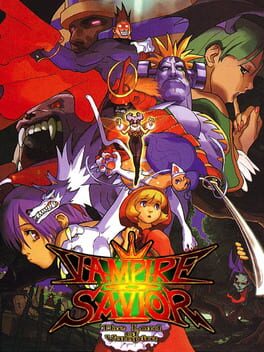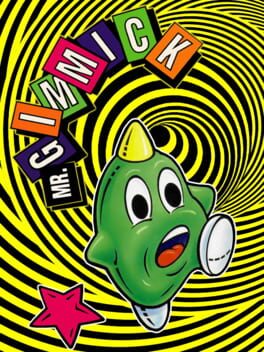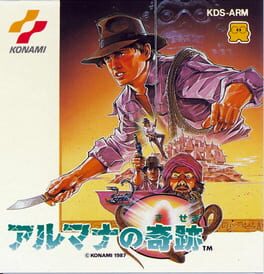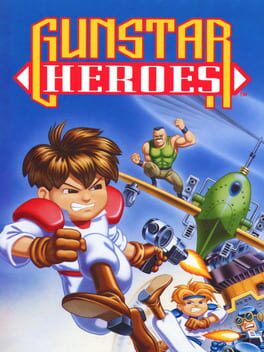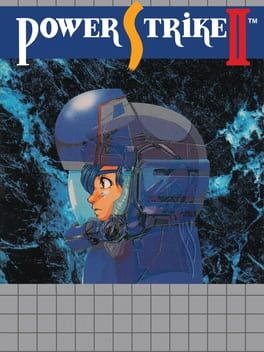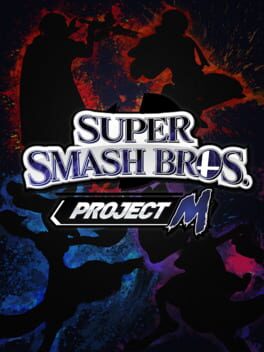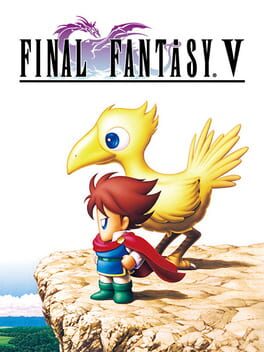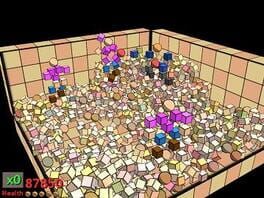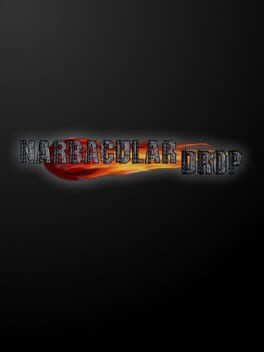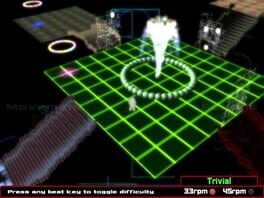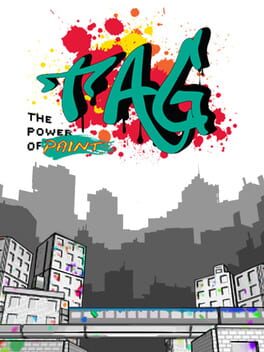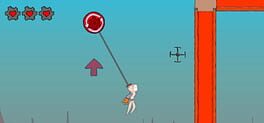yuraniera
755 reviews liked by yuraniera
Evan's Remains
2020
Hell yeah, let's talk about that jump arc. 50% Ice Climber, 50% Metroid, all great. More height than distance, a smooth parabola, a floppy hat and an orange sundress that animate beautifully throughout it. Arms thrown out for balance, feet cocked forward to give the whole affair a little more personality. And those backgrounds? Lush, lovingly rendered with so many layers of parallax, horizontal and vertical, shown off beautifully every time you hit that hop.
There's also the rest of the game, in case jumps aren't your thing. The puzzles are low-key, the music is just right and the story is broken up nicely, a pleasantly twisty affair with just a bit of overreach toward the end that doesn't spoil the pot. A bright, vibrant game with a narrative spine cloaked in grays.
There's also the rest of the game, in case jumps aren't your thing. The puzzles are low-key, the music is just right and the story is broken up nicely, a pleasantly twisty affair with just a bit of overreach toward the end that doesn't spoil the pot. A bright, vibrant game with a narrative spine cloaked in grays.
Apollo Justice Ace Attorney is another one of many love it or hate it titles in the series, it’s got some pretty low lows, but also decently high highs I think, I don’t really consider this one among my personal favorites for reasons I’ll get into later, but I still very much think it’s underrated, and has a lot of great things going for it that the Phoenix Trilogy didn’t. For one compared to those games, the visuals are just on another level man, they really used the jump from the GBA to the DS is really clean man, I love the characters all look great, and the background work here is excellent, I especially really like how the court looks in this game, always found it a lot more visually pleasing than that of the original trilogy, oh and man the case intros are so freaking atmospheric, easily among the series’ best. Soundtrack is also top notch, it doesn’t quite have the emotional highs of TnT, but the stuff here is super memorable, unique, banging, and there are even some legitimately really foreboding tracks that always really get to me, Forgotten Legend especially, that shit is eerie as all hell and I adore it. As for the new gameplay features, the DS gimmicks can be a tad hit or miss, there are some fun ones like messing with the soundboard, but then some stuff like deciphering the painting in case 4 can kinda drag, though I still sorta enjoy the novelty of it ngl. The Perceive mechanic though I could probably do without, it kinda just feels like something that’s here so that they could put it as a selling point on the back of the box, and outside of the one time in the final trial, it doesn’t really have many memorable moments associated with it. Similar to JFA, the cases here are generally regarded as a mixed bag, though interestingly unlike that game, the fan favorite chapter here isn’t the final one, but the first one.
Turnabout Trump is pretty dumb classic, and for good reason, I feel that this case does a really great job at setting up what AJ is trying to go for. Phoenix Wright’s character here is easily one of my favorites in the whole series, this takes place 7 years after TnT, so it makes sense for him to feel like a somewhat different person, he’s become a lot more sleazy and somewhat lazy, but it’s still made pretty clear that behind that mask, he’s still an unrivaled genius, he’s become somewhat displeased with the law, turning to backhanded technics he would previously mock to get his achieved results, I love how it feels like the player is right there with Apollo, wanting to punch him in the face for it, this really sets up an interesting mystery with the question of just how did Phoenix get to this point. Apollo himself is a really fan protagonist, and although he doesn’t really get much when it comes to development, I actually think he makes for a pretty good self insert of the player, behind someone who admired Phoenix and red up on his previous cases, coming into this business behind shocked by the man he’d become, it’s pretty much just Raiden from MGS2, and I love that. There’s also the villain here Kristoph Gavin, who I do feel it a tad overhyped honestly, but he’s still very memorable and works great for this game, the twist with him being the culprit very out of left field, but it works because it’s set up really well, I personally don’t think Trump is one of my favorite cases in the series or really even my favorite intro case, but it is still a DAMN fine one, and it deserves its fan favorite status.
Turnabout Corner then is a case I don’t have too many strong emotions over, yet I also feel it’s a tad misunderstood, it mainly serves the purpose of introducing most of the game’s cast similar to Turnabout Sisters from the first game, there’s the assistant Trucy Wright, the prosecutor Klavier Gavin, and the Detective Ema Skye, all of which I enjoy, Trucy is a pretty fun assistant that has good chemistry with Apollo, Klavier is a really fun spin on the prosecutor trope with him actually being a pretty nice guy overall, and I really like the turn they took with Ema here, with her failing to achieve her dreams, it’s a pretty neat parallel to Phoenix Wright, and I enjoy how she can be kind of an asshole honestly. As for the case itself, I think it has a really cool setup honestly, it involving a lot of smaller crimes that eventually lead to and connect to a murder, it’s really fun slowly peeling the lairs and eventually connecting it all to find the culprit, who’s a tad generic, but a pretty solid one, in general the characters here are pretty fun, I don’t know what it is about Guy Eldoon that I really like, but idk he’s just a really neat guy. The main issue most folks seem to have with this case is that the defendant, Wocky Kitaki, is kind of an unlikable asshole who you wouldn’t really want to defend, but honestly I feel that most people kinda missed the point here, Wocky is only like 19, he’s just a dumb teen that was raised trying to be a Mafia member, of course he’s be an asshole, but I don’t think you’re defending him for HIS sake, you’re doing it for his poor parents who are desperately trying to break away from their past, and want to save their dying son, the ending with Wocky’s father is a really heartwarming moment for that, it’s a unique feeling this series doesn’t give upon victory usually, and I honestly love that. So yeah, Corner isn’t really that great per-se, but I still think it’s a fun case with some unique emotional gravitas for this franchise.
Oh boy though Turnabout Serenade, yeah this isn’t exactly a liked one now is it? I think it’s largely due to the serenade video they make you watch a bunch of times, and while yeah this crap can get pretty damn tiering, it also leads to a lot of REALLY fun and creative contradictions, the crime itself here is honestly one of my favorites in the whole series, it’s really integrated put together and I love how Apollo plays a witness role here, the fact that the defendant is a presumed 14 year old boy presumed to be blind is a tad over the top yeah, and some parts like the super heavy gun that was used could’ve been changed to make the prospect of him being the culprit more believable I think, the actual culprit is pretty fun to take down, but not really much of a noteworthy one, I find it pretty disappointing that Klavier doesn’t have much of a reaction to them being the killer considering that they’re literally in a band together, like Jesus, between this and the arest of his brother, Klavier loses so much throughout the game, and it could’ve really hit hard if they portrayed how hard it is on him, but as it is he’s mostly able to play it cool and hide it all. Back on the topic of Serenade, I like some of it’s auditions to the lore like the existence of made-up countries like Borgania, and unlike previous third cases it also continues to introduce characters who will become important later which helps it feel more substantial, yeah the plot kinda goes of the deep-end later on with all the cocoon smuggling, but idk it’s still pretty fun to solve and fits in with the conflict nicely, Serenade’s not really that good, but I also wouldn’t call it bad, it’s kinda just a bid mid ig.
And finally, Turnabout Succession. This is a really weird one honestly, it manages to have a lot of really cool stuff in it, while also kinda feeling undercooked in a lot of ways, like the final trial is by far the shortest in the whole series, Kristoph literally breaks down after a single testimony due to the jury system. I honestly kinda wish Phoenix’s final trial got to be its own case, letting this one put more screen time on Apollo and the gang, though as it is I do really like said trial, with it using the visuals from the original trilogy, it’s cute. A lot of people say Phoenix didn’t “deserve” to get a penalty for what he did, but consider he pretty much just got a random page from some random girl and considered it to be factual evidence. This is something that has happened numerous times in the original trilogy, and this here is pretty much a critique on Phoenix and why he couldn't just trust everything that’s handed to him. I do like the Mason system, those parts are pretty neat, but it alongside some other stuff actually has a lot of REALLY chilling implications which the game never really touches upon. Phenix pretty much time travels here to unravel the “truth” of the case, and this is presented as something he’s showing to the jury before the final trial. Thing is though, it’s not really made clear how much of what we see actually happened, and how much could have literally just been made up by Phoenix, considering he presents evidence in the past segments he got from the future, it may seem weird that he’s even lie about this, but consider for a second that according to what we know, Phoenix literally KNEW that Drew Misham would die in 7 years time, yet REFUSED to save him and stop the plan, why would he do that though??? The answer is revenge, the entirety of this case is just one massive plan orchestrated by Phoenix Wright to get revenge against the people who ruined his life, Kristoph is literally ALREADY in jail, yet Phoenix is petty enough to drag him down even further, and from what we know, people in Ace Attorney who have killed more than one person receive the death penalty, meaning this plan literally involved killing them both. In the end though, he can’t really be indicted on this, Kirstoph did it to himself after all. The whole thing seems to be uplifting at first, being a lesson on how sometimes the law needs to be changed, and can be flawed, but once you look deeper, you realize that no matter what, the law will ALWAYS be corrupted, such a system handled by humans is not something that can be stable. I personally believe that these themes were originally going to be explored further in sequels to Apollo Justice, but unfortunately, that never happened, and so much of the brilliant stuff that this game setup ended up falling by the wayside.
I still love Apollo Justice for what it is, it’s a fun Ace Attorney game with great characters, and a really fascinating overall story that tackles dark themes you wouldn’t expect initially, the issue with it however is that it feels like the first instrument of a trilogy, setting up a lot of plot points to be resolved in sequels, however, this game never really got a direct sequel, leaving it's story feeling incomplete.There is still a lot of good to be found here, but it doesn't live up to it's incredible potential, which is a crying shame.
Turnabout Trump is pretty dumb classic, and for good reason, I feel that this case does a really great job at setting up what AJ is trying to go for. Phoenix Wright’s character here is easily one of my favorites in the whole series, this takes place 7 years after TnT, so it makes sense for him to feel like a somewhat different person, he’s become a lot more sleazy and somewhat lazy, but it’s still made pretty clear that behind that mask, he’s still an unrivaled genius, he’s become somewhat displeased with the law, turning to backhanded technics he would previously mock to get his achieved results, I love how it feels like the player is right there with Apollo, wanting to punch him in the face for it, this really sets up an interesting mystery with the question of just how did Phoenix get to this point. Apollo himself is a really fan protagonist, and although he doesn’t really get much when it comes to development, I actually think he makes for a pretty good self insert of the player, behind someone who admired Phoenix and red up on his previous cases, coming into this business behind shocked by the man he’d become, it’s pretty much just Raiden from MGS2, and I love that. There’s also the villain here Kristoph Gavin, who I do feel it a tad overhyped honestly, but he’s still very memorable and works great for this game, the twist with him being the culprit very out of left field, but it works because it’s set up really well, I personally don’t think Trump is one of my favorite cases in the series or really even my favorite intro case, but it is still a DAMN fine one, and it deserves its fan favorite status.
Turnabout Corner then is a case I don’t have too many strong emotions over, yet I also feel it’s a tad misunderstood, it mainly serves the purpose of introducing most of the game’s cast similar to Turnabout Sisters from the first game, there’s the assistant Trucy Wright, the prosecutor Klavier Gavin, and the Detective Ema Skye, all of which I enjoy, Trucy is a pretty fun assistant that has good chemistry with Apollo, Klavier is a really fun spin on the prosecutor trope with him actually being a pretty nice guy overall, and I really like the turn they took with Ema here, with her failing to achieve her dreams, it’s a pretty neat parallel to Phoenix Wright, and I enjoy how she can be kind of an asshole honestly. As for the case itself, I think it has a really cool setup honestly, it involving a lot of smaller crimes that eventually lead to and connect to a murder, it’s really fun slowly peeling the lairs and eventually connecting it all to find the culprit, who’s a tad generic, but a pretty solid one, in general the characters here are pretty fun, I don’t know what it is about Guy Eldoon that I really like, but idk he’s just a really neat guy. The main issue most folks seem to have with this case is that the defendant, Wocky Kitaki, is kind of an unlikable asshole who you wouldn’t really want to defend, but honestly I feel that most people kinda missed the point here, Wocky is only like 19, he’s just a dumb teen that was raised trying to be a Mafia member, of course he’s be an asshole, but I don’t think you’re defending him for HIS sake, you’re doing it for his poor parents who are desperately trying to break away from their past, and want to save their dying son, the ending with Wocky’s father is a really heartwarming moment for that, it’s a unique feeling this series doesn’t give upon victory usually, and I honestly love that. So yeah, Corner isn’t really that great per-se, but I still think it’s a fun case with some unique emotional gravitas for this franchise.
Oh boy though Turnabout Serenade, yeah this isn’t exactly a liked one now is it? I think it’s largely due to the serenade video they make you watch a bunch of times, and while yeah this crap can get pretty damn tiering, it also leads to a lot of REALLY fun and creative contradictions, the crime itself here is honestly one of my favorites in the whole series, it’s really integrated put together and I love how Apollo plays a witness role here, the fact that the defendant is a presumed 14 year old boy presumed to be blind is a tad over the top yeah, and some parts like the super heavy gun that was used could’ve been changed to make the prospect of him being the culprit more believable I think, the actual culprit is pretty fun to take down, but not really much of a noteworthy one, I find it pretty disappointing that Klavier doesn’t have much of a reaction to them being the killer considering that they’re literally in a band together, like Jesus, between this and the arest of his brother, Klavier loses so much throughout the game, and it could’ve really hit hard if they portrayed how hard it is on him, but as it is he’s mostly able to play it cool and hide it all. Back on the topic of Serenade, I like some of it’s auditions to the lore like the existence of made-up countries like Borgania, and unlike previous third cases it also continues to introduce characters who will become important later which helps it feel more substantial, yeah the plot kinda goes of the deep-end later on with all the cocoon smuggling, but idk it’s still pretty fun to solve and fits in with the conflict nicely, Serenade’s not really that good, but I also wouldn’t call it bad, it’s kinda just a bid mid ig.
And finally, Turnabout Succession. This is a really weird one honestly, it manages to have a lot of really cool stuff in it, while also kinda feeling undercooked in a lot of ways, like the final trial is by far the shortest in the whole series, Kristoph literally breaks down after a single testimony due to the jury system. I honestly kinda wish Phoenix’s final trial got to be its own case, letting this one put more screen time on Apollo and the gang, though as it is I do really like said trial, with it using the visuals from the original trilogy, it’s cute. A lot of people say Phoenix didn’t “deserve” to get a penalty for what he did, but consider he pretty much just got a random page from some random girl and considered it to be factual evidence. This is something that has happened numerous times in the original trilogy, and this here is pretty much a critique on Phoenix and why he couldn't just trust everything that’s handed to him. I do like the Mason system, those parts are pretty neat, but it alongside some other stuff actually has a lot of REALLY chilling implications which the game never really touches upon. Phenix pretty much time travels here to unravel the “truth” of the case, and this is presented as something he’s showing to the jury before the final trial. Thing is though, it’s not really made clear how much of what we see actually happened, and how much could have literally just been made up by Phoenix, considering he presents evidence in the past segments he got from the future, it may seem weird that he’s even lie about this, but consider for a second that according to what we know, Phoenix literally KNEW that Drew Misham would die in 7 years time, yet REFUSED to save him and stop the plan, why would he do that though??? The answer is revenge, the entirety of this case is just one massive plan orchestrated by Phoenix Wright to get revenge against the people who ruined his life, Kristoph is literally ALREADY in jail, yet Phoenix is petty enough to drag him down even further, and from what we know, people in Ace Attorney who have killed more than one person receive the death penalty, meaning this plan literally involved killing them both. In the end though, he can’t really be indicted on this, Kirstoph did it to himself after all. The whole thing seems to be uplifting at first, being a lesson on how sometimes the law needs to be changed, and can be flawed, but once you look deeper, you realize that no matter what, the law will ALWAYS be corrupted, such a system handled by humans is not something that can be stable. I personally believe that these themes were originally going to be explored further in sequels to Apollo Justice, but unfortunately, that never happened, and so much of the brilliant stuff that this game setup ended up falling by the wayside.
I still love Apollo Justice for what it is, it’s a fun Ace Attorney game with great characters, and a really fascinating overall story that tackles dark themes you wouldn’t expect initially, the issue with it however is that it feels like the first instrument of a trilogy, setting up a lot of plot points to be resolved in sequels, however, this game never really got a direct sequel, leaving it's story feeling incomplete.There is still a lot of good to be found here, but it doesn't live up to it's incredible potential, which is a crying shame.
Silent Hill 3
2003
Out of the original trilogy this is the only one I've never done a full playthrough of. I was fully aware of this game's legacy in regards to the original Team Silent games and it's reputation has often left me questioning what I'd even think of it by the time I got around to it.
I know this game was cobbled together in barely ten months after a bunch of false starts, I know that the original vision was something along the lines of Silent Hill 2's more personal narrative and I know how polarising many of it's creative decisions are.
SH3 is a tremendous closer to a trilogy that may not seem thematically consistent at first but only becomes more and more interesting the deeper you look into it's mechanics and creative choices, a swan song for the Silent Hill series that makes you wonder why they even bothered after this.
Taking SH1's batshit occult lore and imbuing it with SH2's more sorrowful and introspective tone you get here a game that might be Team Silent at the height of their powers. A technical powerhouse with the scariest art direction the series has ever reached. What Silent Hill 3 is doing is on another level and I'm just kind of in awe at how much I really dug this black sheep of the series.
I think the best place of summation for what this game is going for is when the game returns to Silent Hill proper. When you see that you're going to the same hospital that James Sunderland sexually repressed his way through you think that maybe Team Silent lost their edge, that maybe the tumultuous production pipeline had forced them to reuse a bunch of assets. Then Silent Hill 3 shifts you to it's version of the Hospital and you realise that you couldn't be in better hands. The level at which this game unnerves you can't be properly described, it is downright the scariest game I've ever played and I really do mean it.
I just can't stop thinking about this game, how it's protagonist feels like the perfect evolution of what came before. How it's cult narrative is imbued with a sense of genuine loneliness and parental longing and how it's music and sound design elicit something indecipherable. It's messy and it's clear that the game's vision was severely cut down due to meddling but it's rebellious nature still shines through despite all of it.
It's a game about being confronted by God and laughing in her face (and shooting them dead with a gun)
I know this game was cobbled together in barely ten months after a bunch of false starts, I know that the original vision was something along the lines of Silent Hill 2's more personal narrative and I know how polarising many of it's creative decisions are.
SH3 is a tremendous closer to a trilogy that may not seem thematically consistent at first but only becomes more and more interesting the deeper you look into it's mechanics and creative choices, a swan song for the Silent Hill series that makes you wonder why they even bothered after this.
Taking SH1's batshit occult lore and imbuing it with SH2's more sorrowful and introspective tone you get here a game that might be Team Silent at the height of their powers. A technical powerhouse with the scariest art direction the series has ever reached. What Silent Hill 3 is doing is on another level and I'm just kind of in awe at how much I really dug this black sheep of the series.
I think the best place of summation for what this game is going for is when the game returns to Silent Hill proper. When you see that you're going to the same hospital that James Sunderland sexually repressed his way through you think that maybe Team Silent lost their edge, that maybe the tumultuous production pipeline had forced them to reuse a bunch of assets. Then Silent Hill 3 shifts you to it's version of the Hospital and you realise that you couldn't be in better hands. The level at which this game unnerves you can't be properly described, it is downright the scariest game I've ever played and I really do mean it.
I just can't stop thinking about this game, how it's protagonist feels like the perfect evolution of what came before. How it's cult narrative is imbued with a sense of genuine loneliness and parental longing and how it's music and sound design elicit something indecipherable. It's messy and it's clear that the game's vision was severely cut down due to meddling but it's rebellious nature still shines through despite all of it.
It's a game about being confronted by God and laughing in her face (and shooting them dead with a gun)
Kenji Sasaki, the director of Sega Rally at one point in development worked so much on the project that he began questioning the very thought of finding driving "fun".
As a minnow you'll barely know how to drive a go-kart in Super Mario Kart, in comparison a fine-tuned high performance Toyota Celica GT-Four is well above your pay grade. You will start racing in the beginner-friendly Desert course just fine and dandy, until you try to make the very long easy right near the end and see yourself smacking head-first into the stone wall, sometimes even finding your curious eyes getting distracted by the zebras standing nearby. The Forest with it's pine trees welcome you to a hairpin turn that you have no hope of knowing how to handle in your weighty polygonal real world vehicle, and you barely find yourself making it to the end out of sheer luck. Then the apparent finale rears it's ugly head, an insurmountable Mountain with not only it's own hairpin turn, but many tricky curves, a long narrow turn leaving little room for error, and precise maneuvering through town. This is the end for you, this mountain cannot be conquered. You're left to zero knowledge of the hellish Lake Side extra course that lies beyond that mountain, home to narrow precision-demanding turns and chicanes that only true experts of the dirt may discover and have any hope of navigating.
You become enamored over how mean the mountain is, and find it's song mesmerizing through it's triumphant guitar riffs that feel like it's cheering you on. You're but a kid, but you try your best to figure out the science of operating a championship-grade motor vehicle. You only learn so much, even if you do get a bit better at the other portions of the track, a hairpin turn is still essentially a guaranteed crash. Despite an obvious skill plateau for your moronic self, you still find the game fun to play and come back to it just to hear it's cheery demeanor root for you. You've game over'd so many times, but it never feels bad, because the game only wishes to entertain and not belittle.
As an adult you come back to the same game with fondness, puzzled as to why you took so much leisure just driving by yourself in time attack. Was it really just the music? Was the Celica GT-Four just that cool of a car? You come back to the same course and struggle as you normally do, albeit this time with knowledge of how to decelerate and utilize the brake properly. You hug the inside of those corners, you get the drift around the hairpin without touching the embankment, and not a single wall is run into as you make the quick descend through town. That "cool part" of the music that you really liked is now suddenly the victory jubilee as you approach the finish line on the third and final lap. Addiction to the feel of the road sets in, and you find yourself beating the arcade mode and getting the esteemed honor to officially drive on the Lake Side course without the need of that code you found one time on your dad's shitty internet. The Stratos car also becomes yours, best of luck driver, you are now a true master and may access these dangerous assets at any time. You deserve it truly.
It's at this point we come back to Sasaki, who had taken a moment to drive his own car around the mountains to find his spark again to make good-ass driving games, he found the experience so exciting that he based the Mountain track on it and made the very same course that I loved and still do to this day. To transfer that experience to a video game and have it somehow resonate with a six-year old who is now a full grown adult that can handle that hairpin turn with relative ease is a true mark of brilliance, and why Sega Rally stands on it's own as the foundation of all rally racing games and possibly one of my favorite driving games ever made.
Hurrah to you Mr. Sasaki.
As a minnow you'll barely know how to drive a go-kart in Super Mario Kart, in comparison a fine-tuned high performance Toyota Celica GT-Four is well above your pay grade. You will start racing in the beginner-friendly Desert course just fine and dandy, until you try to make the very long easy right near the end and see yourself smacking head-first into the stone wall, sometimes even finding your curious eyes getting distracted by the zebras standing nearby. The Forest with it's pine trees welcome you to a hairpin turn that you have no hope of knowing how to handle in your weighty polygonal real world vehicle, and you barely find yourself making it to the end out of sheer luck. Then the apparent finale rears it's ugly head, an insurmountable Mountain with not only it's own hairpin turn, but many tricky curves, a long narrow turn leaving little room for error, and precise maneuvering through town. This is the end for you, this mountain cannot be conquered. You're left to zero knowledge of the hellish Lake Side extra course that lies beyond that mountain, home to narrow precision-demanding turns and chicanes that only true experts of the dirt may discover and have any hope of navigating.
You become enamored over how mean the mountain is, and find it's song mesmerizing through it's triumphant guitar riffs that feel like it's cheering you on. You're but a kid, but you try your best to figure out the science of operating a championship-grade motor vehicle. You only learn so much, even if you do get a bit better at the other portions of the track, a hairpin turn is still essentially a guaranteed crash. Despite an obvious skill plateau for your moronic self, you still find the game fun to play and come back to it just to hear it's cheery demeanor root for you. You've game over'd so many times, but it never feels bad, because the game only wishes to entertain and not belittle.
As an adult you come back to the same game with fondness, puzzled as to why you took so much leisure just driving by yourself in time attack. Was it really just the music? Was the Celica GT-Four just that cool of a car? You come back to the same course and struggle as you normally do, albeit this time with knowledge of how to decelerate and utilize the brake properly. You hug the inside of those corners, you get the drift around the hairpin without touching the embankment, and not a single wall is run into as you make the quick descend through town. That "cool part" of the music that you really liked is now suddenly the victory jubilee as you approach the finish line on the third and final lap. Addiction to the feel of the road sets in, and you find yourself beating the arcade mode and getting the esteemed honor to officially drive on the Lake Side course without the need of that code you found one time on your dad's shitty internet. The Stratos car also becomes yours, best of luck driver, you are now a true master and may access these dangerous assets at any time. You deserve it truly.
It's at this point we come back to Sasaki, who had taken a moment to drive his own car around the mountains to find his spark again to make good-ass driving games, he found the experience so exciting that he based the Mountain track on it and made the very same course that I loved and still do to this day. To transfer that experience to a video game and have it somehow resonate with a six-year old who is now a full grown adult that can handle that hairpin turn with relative ease is a true mark of brilliance, and why Sega Rally stands on it's own as the foundation of all rally racing games and possibly one of my favorite driving games ever made.
Hurrah to you Mr. Sasaki.
Howdy howdy y'all, it's your bestest and most favoritest star in all of Steamywood, DA NOISE! Can you smell what the Noise ain't cookin'?! Cause I can sure smell what Peppino was cookin', yowie wowie what a stench. This game blew so much hot ass before I showed up didn't it?! Could ya believe it?! They left me as just the third boss. THE THIRD BOSS. Me?! The Noise?! Boise, Idaho's favorite boi with the most poise?! There's a new director in town baby, and the academy's gonna be unprepared for this greatness. They're gonna give me a gajillion Oscars, and the Dorito Pope will be giving me every game of the year award for every year going forward and every past year too, because everything else is gonna be trash in comparison. Why bother making anything else? The Noise is here.
Woag. lights giant cigar with fancy zippo lighter with his own face on it
You see, The Noise don't play by anyone's rules, no sir/ma'am/mx. When The Noise plays golf, golf is actually played by The Noise. Numbers are made up and points don't matter, so who cares? Every burg is a primo burg when The Noise cooks. If you're not trying, you're not cheating. What if The Noise doesn't feel like racing? What about that ya stupid rocking horse? How about I give you a nuclear wedgie instead and beat the prize out of ya?! I ain't deliverin' no pizza, ya damn gnomes can get it yourself. That shit is positively abhorrent I must say! (sips tea) I'll destroy every house that actively orders that garbage. Don't cry to me when you see your fancy gnome cottage go flying to the third moon of Jupiter. YOU DID THIS! Take it from me kid, you'll go a lot further in this business when you see it the noisy way.
Ya see, I ain't like that lousy pastry chef, I'm a handsome and incredibly tall man with a college degree and a very beautiful girlfriend. I taught that Tony Bird guy how to do the 900 McNuttly Twist so he could become a Pro Skater, and I always know to shoot first and ask questions later. The personification of chaos, a chaos that Jack Garland wants none of. However you gotta know kid, that since you're no longer playing a shit chef with shit expectations, there comes much bigger demands from someone as POWERFUL and GOOD LOOKING as I am. You see, The Noise ALWAYS S-Ranks at minimum, I don't care what my producers say about being nicer about the lower ranks. I took a massive paycut to say what I fuckin' said if you ever D-rank in my general vicinity. YOU KNOW WHAT YOU'RE IN FOR IF THAT SCENARIO HAPPENS, CAPEESH?!? A-rank may be acceptable to you, but if it were up to me it'd stand for ASS! I take nothing else, ya hear?! Now if you excuse me, the GF is a-waitin' for me. Don't be having any skillet issues on me, or there's gonna be a bit of a crockpot conundrum.
HIT MY MUSIC.
With Love to his adoring fans,
Your boi the Noise
XOXOXOXOXOXO
P.S. Woag.
We
Oughta
Assbeat
Gnomes
Woag. lights giant cigar with fancy zippo lighter with his own face on it
You see, The Noise don't play by anyone's rules, no sir/ma'am/mx. When The Noise plays golf, golf is actually played by The Noise. Numbers are made up and points don't matter, so who cares? Every burg is a primo burg when The Noise cooks. If you're not trying, you're not cheating. What if The Noise doesn't feel like racing? What about that ya stupid rocking horse? How about I give you a nuclear wedgie instead and beat the prize out of ya?! I ain't deliverin' no pizza, ya damn gnomes can get it yourself. That shit is positively abhorrent I must say! (sips tea) I'll destroy every house that actively orders that garbage. Don't cry to me when you see your fancy gnome cottage go flying to the third moon of Jupiter. YOU DID THIS! Take it from me kid, you'll go a lot further in this business when you see it the noisy way.
Ya see, I ain't like that lousy pastry chef, I'm a handsome and incredibly tall man with a college degree and a very beautiful girlfriend. I taught that Tony Bird guy how to do the 900 McNuttly Twist so he could become a Pro Skater, and I always know to shoot first and ask questions later. The personification of chaos, a chaos that Jack Garland wants none of. However you gotta know kid, that since you're no longer playing a shit chef with shit expectations, there comes much bigger demands from someone as POWERFUL and GOOD LOOKING as I am. You see, The Noise ALWAYS S-Ranks at minimum, I don't care what my producers say about being nicer about the lower ranks. I took a massive paycut to say what I fuckin' said if you ever D-rank in my general vicinity. YOU KNOW WHAT YOU'RE IN FOR IF THAT SCENARIO HAPPENS, CAPEESH?!? A-rank may be acceptable to you, but if it were up to me it'd stand for ASS! I take nothing else, ya hear?! Now if you excuse me, the GF is a-waitin' for me. Don't be having any skillet issues on me, or there's gonna be a bit of a crockpot conundrum.
HIT MY MUSIC.
With Love to his adoring fans,
Your boi the Noise
XOXOXOXOXOXO
P.S. Woag.
We
Oughta
Assbeat
Gnomes
Blue Revolver
2016
Yakuza 5 Remastered
2019
it’s insane how each entry in this series just keeps getting better and better. this game tells an utterly massive story, with so many different plot threads that all somehow come together perfectly to create my favorite ending so far. Yakuza 5 is a story about what it means to pursue a dream, what it means to pass on that dream, and what it means not to give up. presented absolutely beautifully, somehow we’ve reached new heights in a series that already soars to those of the highest sky scrapers. I couldn’t begin to organize all of my thoughts on this game— it’s one of the biggest i’ve played in my life. It’s worth every second of it though, there really isn’t a truly bad moment here. the best iteration of the combat so far in the series, and as mentioned, an absolutely wonderful story. I have no further notes… it was kino
Yakuza 4 Remastered
2019
“Power has always reigned supreme. Some use, while others become the used. Those who hold power are protected by it. Do you know why?”
“Because that is this country’s very foundation.”
Yakuza 4 is rough and sloppy. It’s got a ton of loose ends and demands some touching up. However, its deep and thorough reverence for series’ legacy can’t be overlooked. If you can look past the iffy occasional plotline, 4 is a thorough mechanical exploration of the series and its ideological framework. Broken men accustomed to a broken system, and yet punching their way up through pure meathead tenacity and physical brutality. Vested interest in noble samurai myth, modernized in Japan’s organized crime. Despite their many shortcomings, however, the four men atop the Millennium Tower hold a shared conviction.
Imbued with Koichi Yamadera’s swagger and nonplussed voice lines, Shun Akiyama exists as Kamurocho native. He doesn’t drop in to visit when things get rough, he’s lying around in his office during the dry patches when alleged virtuous yakuza come storming down the street. Akiyama’s seen it all, the absolute height of stature and the nadir of poverty. He’s not above sharing a couple beers with the homeless discarded around West Park. After three mainline games of steamrolling everything in sight as Kiryu, Akiyama is a nice refresher that places the world the men share in a new perspective. Suddenly, even the most petty and minute yakuza feuds become huge headaches. The ebb and flow of crime and commerce in Kamurocho is just something you get used to.
To the confusion of Kanemura’s goons, Akiyama isn’t in it for money. He’s got more of that shit than anyone could ever need. He’s like a god, strolling through the city knowing anyone that fucks with him gets the good old one-two capoeira treatment. Akiyama owes his life to the yakuza. Nishiki’s explosive departure back in ‘05 gave him an extra chance out of the life stripped away from him by the powers that be. And if that wasn’t good enough, good old Arai meted out his brand of justice to anyone looking to rob a desperate homeless man. Shun’s got nothing but respect for Arai – in his eyes, a spitting image of a future chairman. Just as the man gave him the means to pursue greater things, Akiyama’s in love with the idea of offering his own second chances to clients.
Taiga Saejima takes matters into his own hands. No bullshitting around, no asking questions until after things are done. He’s resilient as an ox, and chained down by his eighteen sins carried out all the way back in 1985. RGG Studio plays around with the idea of a good-natured yakuza grunt funneled through 25 years of The System. Saejima doesn’t have the charisma of an Akiyama or a kind of tactical mind like those moving him around as a chess piece, but he exists as an immovable wall. Saejima contrasts with Kiryu and Majima in the utter disgust he views his own legend with. He won’t look back ‘cause he cares way more about helping Sasai out than anything else, but the 18 men he took out haunt him every day. Detached civvies stand around Purgatory, treating him like a circus act – waiting for the tiger’s ferocity to dominate deathmatches. But Saejima is scared shitless of putting down another man ever again. Nobody understands the weight of life more than a man with a conscience that’s taken it.
Majima processes his trauma through his facade of the Mad Dog, an idea further touched on in Zero and Kiwami 2. The immense guilt from leaving his brother behind, and the fear of getting tricked by an asshole like Shibata again shares him shitless. But Saejima doesn’t really have that kind of tool. There’s nothing he uses to help him sleep at night, to him getting drunk on a delusion or distraction to help him sleep would mean he’s forgotten the eighteen lives he believes he’s stolen, even if just for a night.
Guy wanted nothing more than to save his stepsister and make sure she had a proper organ transplant, but ends up signing off his life to the Sasai Family, serving their beck-and-call. Despite always being under someone, Saejima chooses to be that way. He’s no charismatic magnet, but he attracts those around him willing to listen and change. Fundamentally, even if it’s for the sake of someone else, the man faces everything head-on.
Yasuko tells Tanimura his brother wanted to be a teacher. While he’s got no chance these days of being in the education system, Saejima naturally gravitates towards his mentor role. When he’s able to look past his guilt and self-loathing, the man’s able to pour into young men looking up to him. The Sodachi Dojo reinforces this idea and the way he encourages Kido to face shit head on is inspiring.
Tanimura’s a weird guy. If Akiyama is king of the night, running a good chunk of Kamurocho’s businesses, Tanimura’s here for the little nooks and crannies of the city. He knows he’s not a saint, and doesn’t care either. Meandering about day to day, knowing he can strong arm the healthy black market in the city. What’s there to say about him? He’s a dirty cop that fits the similarly coarse setting of the city. Compared to the seemingly morally righteous Arai, Tanimura doesn’t try to back up his shit with any kind of lofty speeches. He’ll empty a mag inches away from your head if it gets you talking. This fictionalized archetype of “bad cop” fits great with the storyline and adds a well-deserved extra dimension to Kamurocho.
Yakuza 4, and the series as a whole, is tied together by Kiryu’s conviction. He’s a pretty well-rounded guy by this point, living comfortably as a living legend and carrying on Kazama’s legacy through his orphanage. Kiryu’s inspirational words drive Yakuza 4: even the biggest pieces of shit can come around and learn to confide in others. Hamazaki, the guy who eats duck bones like potato chips and leaves bombs in suitcases, the man willing to surprise poke Kiryu in the gut, can still choose what little he has left of his life to shape a better world. Kiryu and Saejima are similarly bull-headed guys that have gone through it: losing their loved ones and being forced to adjust to a criminal world so incredibly drastically different from their glory days. It sucks, but Kiryu’s seen this shit before. After Yasuko croaks, Kiryu’s the one to push his ass into action.
“Too many people depend on us. Their dreams depend on us.”
Kiryu’s messed up quite a bit. He’s fundamentally split between his second life raising kids and the enormous Kanto criminal organization he pretty much walked straight out of. His routine of slipping in to help out when shit gets real bad and pulling out the whole rest of the year might be convenient, but the incredibly variable nature of his arrivals means the Tojo Clan is slowly dying. Daigo’s more aware of this than anybody else, and the rosy ideals of Kiryu don’t really convince him anymore. After the Hakuho Clan falling apart with Mine’s death, what else is he supposed to do? In his eyes, they’re pretty much screwed. And yet, it’s so incredibly damn important that the way of life we’ve vicariously lived through these past few games is preserved. Kiryu and Saejima need to fight for the Tojo Clan:
“It’s the only proof that guys like us ever existed.”
Yakuza 4 fully comes to terms with the series’ romanticizing of yakuza and places it within a deeply corrupt framework, distilling series tropes of backstabbings and betrayals down to rapid-fire gunshot sequences almost beyond parody. The reality of the yakuza, and the Kamuro police, is they’re deeply sinister and morally bankrupt. Despite it all, we can still aspire to meet Kiryu’s undying conviction.
“Because that is this country’s very foundation.”
Yakuza 4 is rough and sloppy. It’s got a ton of loose ends and demands some touching up. However, its deep and thorough reverence for series’ legacy can’t be overlooked. If you can look past the iffy occasional plotline, 4 is a thorough mechanical exploration of the series and its ideological framework. Broken men accustomed to a broken system, and yet punching their way up through pure meathead tenacity and physical brutality. Vested interest in noble samurai myth, modernized in Japan’s organized crime. Despite their many shortcomings, however, the four men atop the Millennium Tower hold a shared conviction.
Imbued with Koichi Yamadera’s swagger and nonplussed voice lines, Shun Akiyama exists as Kamurocho native. He doesn’t drop in to visit when things get rough, he’s lying around in his office during the dry patches when alleged virtuous yakuza come storming down the street. Akiyama’s seen it all, the absolute height of stature and the nadir of poverty. He’s not above sharing a couple beers with the homeless discarded around West Park. After three mainline games of steamrolling everything in sight as Kiryu, Akiyama is a nice refresher that places the world the men share in a new perspective. Suddenly, even the most petty and minute yakuza feuds become huge headaches. The ebb and flow of crime and commerce in Kamurocho is just something you get used to.
To the confusion of Kanemura’s goons, Akiyama isn’t in it for money. He’s got more of that shit than anyone could ever need. He’s like a god, strolling through the city knowing anyone that fucks with him gets the good old one-two capoeira treatment. Akiyama owes his life to the yakuza. Nishiki’s explosive departure back in ‘05 gave him an extra chance out of the life stripped away from him by the powers that be. And if that wasn’t good enough, good old Arai meted out his brand of justice to anyone looking to rob a desperate homeless man. Shun’s got nothing but respect for Arai – in his eyes, a spitting image of a future chairman. Just as the man gave him the means to pursue greater things, Akiyama’s in love with the idea of offering his own second chances to clients.
Taiga Saejima takes matters into his own hands. No bullshitting around, no asking questions until after things are done. He’s resilient as an ox, and chained down by his eighteen sins carried out all the way back in 1985. RGG Studio plays around with the idea of a good-natured yakuza grunt funneled through 25 years of The System. Saejima doesn’t have the charisma of an Akiyama or a kind of tactical mind like those moving him around as a chess piece, but he exists as an immovable wall. Saejima contrasts with Kiryu and Majima in the utter disgust he views his own legend with. He won’t look back ‘cause he cares way more about helping Sasai out than anything else, but the 18 men he took out haunt him every day. Detached civvies stand around Purgatory, treating him like a circus act – waiting for the tiger’s ferocity to dominate deathmatches. But Saejima is scared shitless of putting down another man ever again. Nobody understands the weight of life more than a man with a conscience that’s taken it.
Majima processes his trauma through his facade of the Mad Dog, an idea further touched on in Zero and Kiwami 2. The immense guilt from leaving his brother behind, and the fear of getting tricked by an asshole like Shibata again shares him shitless. But Saejima doesn’t really have that kind of tool. There’s nothing he uses to help him sleep at night, to him getting drunk on a delusion or distraction to help him sleep would mean he’s forgotten the eighteen lives he believes he’s stolen, even if just for a night.
Guy wanted nothing more than to save his stepsister and make sure she had a proper organ transplant, but ends up signing off his life to the Sasai Family, serving their beck-and-call. Despite always being under someone, Saejima chooses to be that way. He’s no charismatic magnet, but he attracts those around him willing to listen and change. Fundamentally, even if it’s for the sake of someone else, the man faces everything head-on.
Yasuko tells Tanimura his brother wanted to be a teacher. While he’s got no chance these days of being in the education system, Saejima naturally gravitates towards his mentor role. When he’s able to look past his guilt and self-loathing, the man’s able to pour into young men looking up to him. The Sodachi Dojo reinforces this idea and the way he encourages Kido to face shit head on is inspiring.
Tanimura’s a weird guy. If Akiyama is king of the night, running a good chunk of Kamurocho’s businesses, Tanimura’s here for the little nooks and crannies of the city. He knows he’s not a saint, and doesn’t care either. Meandering about day to day, knowing he can strong arm the healthy black market in the city. What’s there to say about him? He’s a dirty cop that fits the similarly coarse setting of the city. Compared to the seemingly morally righteous Arai, Tanimura doesn’t try to back up his shit with any kind of lofty speeches. He’ll empty a mag inches away from your head if it gets you talking. This fictionalized archetype of “bad cop” fits great with the storyline and adds a well-deserved extra dimension to Kamurocho.
Yakuza 4, and the series as a whole, is tied together by Kiryu’s conviction. He’s a pretty well-rounded guy by this point, living comfortably as a living legend and carrying on Kazama’s legacy through his orphanage. Kiryu’s inspirational words drive Yakuza 4: even the biggest pieces of shit can come around and learn to confide in others. Hamazaki, the guy who eats duck bones like potato chips and leaves bombs in suitcases, the man willing to surprise poke Kiryu in the gut, can still choose what little he has left of his life to shape a better world. Kiryu and Saejima are similarly bull-headed guys that have gone through it: losing their loved ones and being forced to adjust to a criminal world so incredibly drastically different from their glory days. It sucks, but Kiryu’s seen this shit before. After Yasuko croaks, Kiryu’s the one to push his ass into action.
“Too many people depend on us. Their dreams depend on us.”
Kiryu’s messed up quite a bit. He’s fundamentally split between his second life raising kids and the enormous Kanto criminal organization he pretty much walked straight out of. His routine of slipping in to help out when shit gets real bad and pulling out the whole rest of the year might be convenient, but the incredibly variable nature of his arrivals means the Tojo Clan is slowly dying. Daigo’s more aware of this than anybody else, and the rosy ideals of Kiryu don’t really convince him anymore. After the Hakuho Clan falling apart with Mine’s death, what else is he supposed to do? In his eyes, they’re pretty much screwed. And yet, it’s so incredibly damn important that the way of life we’ve vicariously lived through these past few games is preserved. Kiryu and Saejima need to fight for the Tojo Clan:
“It’s the only proof that guys like us ever existed.”
Yakuza 4 fully comes to terms with the series’ romanticizing of yakuza and places it within a deeply corrupt framework, distilling series tropes of backstabbings and betrayals down to rapid-fire gunshot sequences almost beyond parody. The reality of the yakuza, and the Kamuro police, is they’re deeply sinister and morally bankrupt. Despite it all, we can still aspire to meet Kiryu’s undying conviction.
Brilliant game, it's the most inventive Castlevania since the likes of Simon's Quest (credit for trying), Rondo of Blood, Symphony of the Night and Aria of Sorrow. Every element here feels like an evolution of what you've found on previous games while standing on its own with a solid foundation.
First off, the anime style is gone and now we get artwork and character design by Masaki Hirooka. Not Ayami Kojima, yeah, but the artwork is really well done and fits Castlevania. This is aided by great presentation in the story. Don't get me wrong, it's extremely predictable, but the presentation overall doesn't make me uncomfortable anymore while still having silly elements to it, like cryptid hunting. Also Shanoa is up there as one of the best Castlevania protagonists.
Glyphs are a great followup to the soul system from the Sorrow games, now we have 3 different glyph sets to start with and instead of giving every enemy a collectible glyph, they focused on making a smaller amount of them that can be given more importance. Mixing different types creates Glyph Unions, which are special attacks, and using the right ones can make the difference in boss fights. Attacking is also recontextualized once more, as the MP bar is used by your regular attacks so you can't just spam them, but you can combo between 2 weapons (equipping on each hand is back!) and hearts are used by Glyph Unions. This system is compared to the Souls games by some, and I definitely see where they come from, but this game came firstand also it is better.
The map system feels oddly natural after Portrait of Ruin. Instead of starting in Castlevania, we get to explore a bunch of loose areas that we access from an overworld map, with new ones unlocking after completing another. A few of them are unfortunately little more than a corridor, but they all have a different theme and are worth exploring depending on what item/glyph/monster you're looking for. We still get a Castle section, but it feels more like a proper fully featured Castle than in Portrait of Ruin.
Side quests evolved into them being given by different NPCs across a village which may as well be called your HQ, where completing them unlocks more items available in the shop if not a direct reward. A few of them are unfortunately tedious fetch quests, but luckily aren't required and I still found value in doing them when I was looking to take a break from exploring the final area. I didn't complete all of them though because it's not something I usually do, but I got close.
In terms of difficulty there is a big jump at the end, but there is a detail which is made way more important in this game. Never before has attacking with different types be this effective and you should really investigate what equipment works best against bosses, as well as get good at dodging their attacks as your focus to survive should usually be on your movement.
The final fight with Dracula was deceptively hard but it has great payoff, not necessarily because the ending is great, but because it felt like beating him in the original Castlevania (well maybe that one was kinda bs). Super tough, takes long, but failing is not due to having bad stats (unless maybe you're hurrying through this game) as there is space for you to do well, it's all about practice.
Overall I loved this game, for what it's doing as a first attempt and also polishing up what has been built since SOTN I can't imagine it getting things more right at the time. If the side quests were less annoying to complete and the areas that are just corridors got expanded on, this could very well be a perfect game. It's very sad that Konami didn't allow the franchise to keep going in this direction, but from the little I've seen of Ritual of the Night Miriam is basically Shanoa 2 so I'm glad it is having some influence out there.
First off, the anime style is gone and now we get artwork and character design by Masaki Hirooka. Not Ayami Kojima, yeah, but the artwork is really well done and fits Castlevania. This is aided by great presentation in the story. Don't get me wrong, it's extremely predictable, but the presentation overall doesn't make me uncomfortable anymore while still having silly elements to it, like cryptid hunting. Also Shanoa is up there as one of the best Castlevania protagonists.
Glyphs are a great followup to the soul system from the Sorrow games, now we have 3 different glyph sets to start with and instead of giving every enemy a collectible glyph, they focused on making a smaller amount of them that can be given more importance. Mixing different types creates Glyph Unions, which are special attacks, and using the right ones can make the difference in boss fights. Attacking is also recontextualized once more, as the MP bar is used by your regular attacks so you can't just spam them, but you can combo between 2 weapons (equipping on each hand is back!) and hearts are used by Glyph Unions. This system is compared to the Souls games by some, and I definitely see where they come from, but this game came first
The map system feels oddly natural after Portrait of Ruin. Instead of starting in Castlevania, we get to explore a bunch of loose areas that we access from an overworld map, with new ones unlocking after completing another. A few of them are unfortunately little more than a corridor, but they all have a different theme and are worth exploring depending on what item/glyph/monster you're looking for. We still get a Castle section, but it feels more like a proper fully featured Castle than in Portrait of Ruin.
Side quests evolved into them being given by different NPCs across a village which may as well be called your HQ, where completing them unlocks more items available in the shop if not a direct reward. A few of them are unfortunately tedious fetch quests, but luckily aren't required and I still found value in doing them when I was looking to take a break from exploring the final area. I didn't complete all of them though because it's not something I usually do, but I got close.
In terms of difficulty there is a big jump at the end, but there is a detail which is made way more important in this game. Never before has attacking with different types be this effective and you should really investigate what equipment works best against bosses, as well as get good at dodging their attacks as your focus to survive should usually be on your movement.
The final fight with Dracula was deceptively hard but it has great payoff, not necessarily because the ending is great, but because it felt like beating him in the original Castlevania (well maybe that one was kinda bs). Super tough, takes long, but failing is not due to having bad stats (unless maybe you're hurrying through this game) as there is space for you to do well, it's all about practice.
Overall I loved this game, for what it's doing as a first attempt and also polishing up what has been built since SOTN I can't imagine it getting things more right at the time. If the side quests were less annoying to complete and the areas that are just corridors got expanded on, this could very well be a perfect game. It's very sad that Konami didn't allow the franchise to keep going in this direction, but from the little I've seen of Ritual of the Night Miriam is basically Shanoa 2 so I'm glad it is having some influence out there.
29 lists liked by yuraniera
by zandyne_ |
15 Games
by KB0 |
244 Games
by Reddish |
14 Games
by AshleighTheTurt |
54 Games
by foolykly |
25 Games
by Reddish |
13 Games
by HiTheHello |
21 Games
by PasokonDeacon |
69 Games
